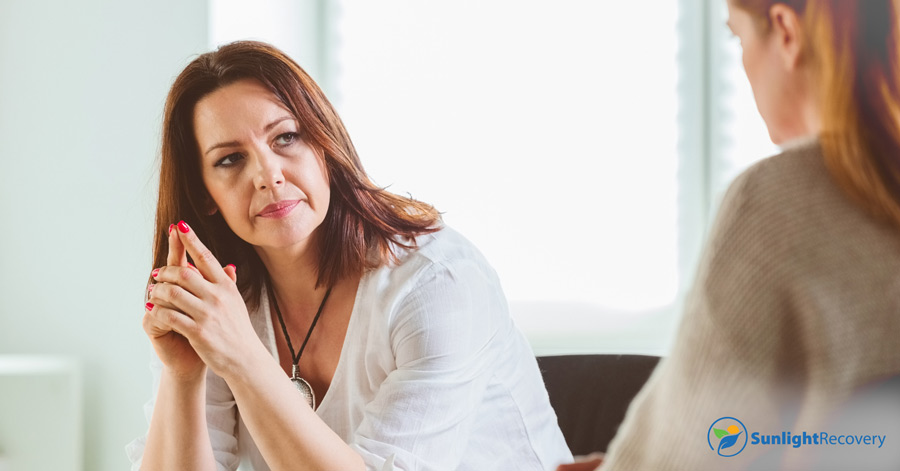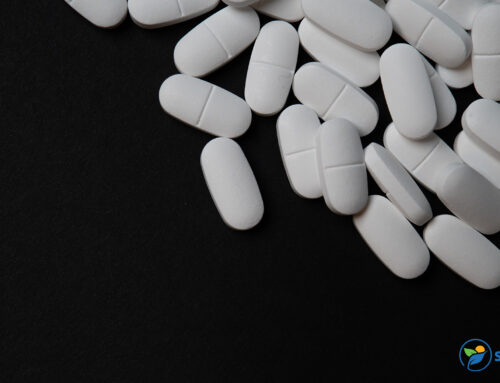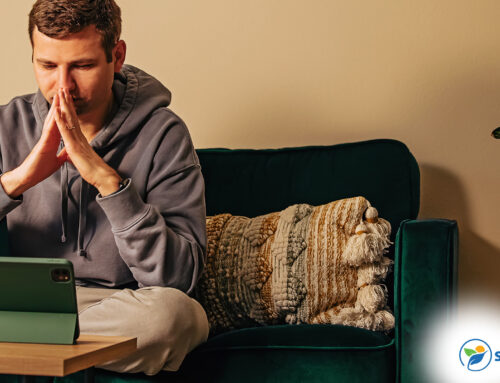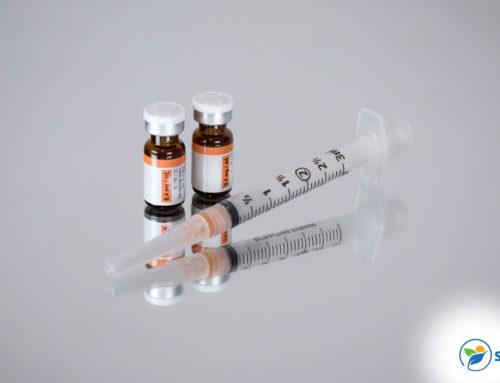Opioid addiction in the United States reached epidemic proportions in 2017, prompting the Department of Health and Human Services (HHS) to declare it a public health emergency that year. Even today, annual opioid overdose deaths number nearly 50,000. What used to be prescription medication for severe pain is now the cause of death in 7 of every 10 drug overdoses. If you believe a friend or family member is addicted to opioids, read on to learn how to help a heroin addict.
Opioid use disorder (OUD) is classified as a chronic and relapsing medical condition brought on by persistent opioid use. OUD is known to significantly impair the quality of life for more than 16 million people across the world and over 2 million people in the United States.
Nationwide, the number of Americans struggling with opioid usage is comparable to the number of people receiving treatment for epilepsy, psoriatic arthritis and obsessive-compulsive disorder combined. Abuse of prescription opioids is believed to cause heroin-like side effects. Heroin is an opioid synthesized from morphine, which is itself derived from the poppy plant — the source of opium and all opioids. Anyone who’s seen a person struggle with opioid addiction is aware of the havoc it causes in their personal and social lives. Withdrawal symptoms associated with unregulated opioid dependence make it nearly impossible to convince users to quit.
It can be devastating to want to help a loved one going through something like this but have no idea where to begin. Fortunately, you don’t have to go it alone when starting someone off on the road to recovery. There are clinics, specialists and resources like this one to help you make sense of addiction.
This article addresses how to help a heroin addict and what’s involved in helping someone hooked on opioids break their habit and reclaim a normal life.
When Does Someone’s Prescription Drug Use (Opiates) Need to Be Addressed?
Given the considerable therapeutic efficacy of prescribed opiates, it’s generally difficult to distinguish between their legitimate medical use and abuse. Understanding the mechanisms of prescription opiates is necessary to recognize when to intervene in someone’s drug use.
Prescription opioids are effective in treating moderate to severe bodily pain, coughing and diarrhea. They’re mostly prescribed to relieve serious pain and help patients relax. In addition, a lot of people use them in anticipation of their relaxing effects. However, it’s important to know when the use of these drugs crosses over into dangerous territory.
It’s time for you to say something when someone you know is:
- Using medication in an unapproved manner or in unprescribed doses
- Using a prescription drug issued to someone else
- Using medication as a narcotic drug.
Intervening at the right time is vital because prolonged use of opioids can have severe consequences, including confusion, drowsiness, constipation, exhilaration, slurred speech and nausea. In critical cases, substance abuse that results in sluggish breathing might cause permanent harm to the body’s physiological and neurological systems.
How to Help a Heroin Addict
The old adage “An ounce of prevention is worth a pound of cure” is especially true when it comes to the issue of drug addiction. Unfortunately, prevention is just not possible in some cases. Knowing how to deal with a heroin addict can be extremely helpful in determining whether a friend, partner, spouse, parent or sibling is already addicted or at risk of becoming addicted. It’s necessary to understand the various causes of substance misuse, such as the inability to deal with loss, grief or anxiety or PTSD, as well as genetic predisposition. Being familiar with these causes can help you identify what makes your loved one particularly vulnerable.
Remember to keep in mind that your function and limitations as a caregiver are important components of learning how to assist a heroin addict. Being related to an addict can be an isolating experience for you because not everyone will understand your challenges. Your mental and financial well-being may suffer as a consequence of providing support. You could experience a range of negative emotions, including guilt, rage, contempt and frustration, while you witness a loved one battling addiction. During this trying time, you can find local support groups and listening circles to provide the coping mechanisms, resources and encouragement you need.
Equally important while going through this phase is taking care of yourself — getting enough sleep, exercise and support and enrolling in affordable therapy. Develop new relationship strategies if you want to know how to effectively communicate with an addicted person. For instance, it may be tempting to give in to an addict’s emotional and frequent monetary demands. To force them to seek assistance for their condition, it’s necessary to build the willpower to hold them accountable and intentionally refuse any other form of help that enables their drug use.
Should You Be the One to Help?
At some point, you must consider whether you’re actually in a position to bring about effective change for a heroin addict. Depending on how much the situation has escalated, and with an eye to your own resources, you may be able to help them on your own for some time. However, you must remember that heroin addiction help will have a significant negative impact on your physical, emotional and mental health, as well as your finances and other resources. Given that there is no quick fix, the process of recovery can take a toll on your relationship with the person struggling with addiction and others. In reality, addiction treatment is complex and multifaceted and requires particular specialization to address the person’s physical, psychological, emotional and social needs.
What Help or Support Can You Offer?
When you realize it’s time to provide support for your loved one, it can be quite difficult to know where to begin. For starters, you’ll have to work through the addicted person’s range of emotions, including denial, rage, justifications for their drug use and avoidance, before you can advise them to get treatment. Convey your concern about the impact their drug use is having without passing judgment. Negative communication might amplify feelings of loneliness and shame that the person might already be experiencing. Ensure that you make your own boundaries known while doing this. Moreover, provide well-researched information regarding available professional treatment alternatives.
Encourage Them to Seek Care
The time will come when you’ll need to seek help if you know someone who is struggling with opiate abuse. You can start by speaking to a qualified mental health or substance abuse counselor to figure out an impactful treatment plan and ensure a better quality of life for your loved one. A group of highly skilled medical and clinical professionals is on hand at Sunlight Recovery to help addicts take the necessary steps toward reclaiming their lives. Get in touch with us right away to have a private conversation with one of our compassionate and deeply informed counselors.






